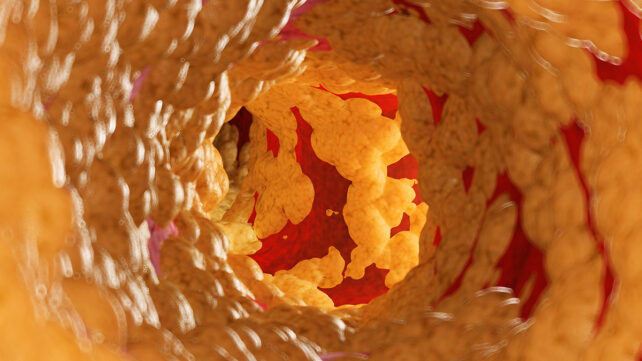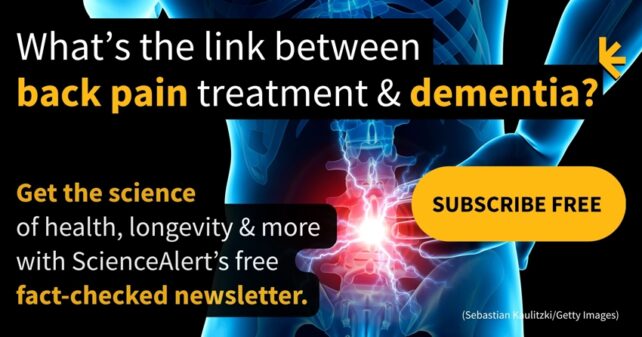A powerful new treatment has emerged in efforts to reduce high cholesterol levels and the associated risk of heart health problems. In a new trial, the drug enlicitide decanoate was found to lower 'bad' cholesterol by almost 60 percent.
An international research team tested the drug in a randomized clinical trial involving people with an inherited condition that causes dangerously high blood levels of low-density lipoprotein cholesterol (LDL-C) – the 'bad' type.
"Heterozygous familial hypercholesterolemia (HeFH) is a common genetic disorder that affects approximately 1 in 250 individuals and is characterized by elevated levels of LDL-C from birth," write the researchers in their published paper.
Related: Drugs That Lower Cholesterol May Also Reduce Dementia Risk, Says Huge New Study
They recruited 293 participants with HeFH, who were already taking cholesterol-lowering statins that weren't having the desired effect.
A once-daily enlicitide decanoate pill was shown to reduce LDL-C by an average of 58.2 percent after 24 weeks. Those given a placebo instead actually saw a slight rise in the levels of LDL-C.
"In adults with HeFH, enlicitide is an effective and well-tolerated treatment for lowering the level of LDL-C," the study authors write.
More positive results: side effects were limited and similar between the treatment and placebo groups, and the benefits of the experimental drug remained consistent over the 52-week trial. Key cholesterol biomarkers associated with heart health were reduced in the treatment group too.

Enlicitide decanoate is what's known as a PCSK9 inhibitor: Essentially, this means it limits the effectiveness of PCSK9, a blood protein that can interfere with the liver's efforts to clear away LDL-C, causing a buildup. The treatment is basically making sure the liver can do its cholesterol-clearing job properly.
There are already PCSK9 inhibitors available, but they're administered via injection. Patients are more likely to stick to courses of drugs given in pill form, and here, 98 percent of the trial participants did.
"Adherence with both the once-daily oral intervention and fasting instructions for dosing was notably high in both treatment groups," write the researchers.
High LDL-C is a problem for tens of millions of people worldwide, not just those with HeFH. The main negative consequence is the buildup of fatty deposits in the arteries, restricting blood flow and limiting how much blood reaches the heart and brain. Heart attacks and strokes become more likely.
With that in mind, next the researchers want to see if this reduction in LDL-C has any meaningful impact on the risk of strokes and heart attacks, and test the drug more broadly. However, at least for this subgroup of people, we may now have a way of lowering LDL-C back to regular levels.
Related: Eating Eggs Can Actually Lower Bad Cholesterol, New Study Says
The drug still needs to get regulatory approval before it can be prescribed, but a phase 3 trial like this one is a key step – and the results are very encouraging.
"Without timely intervention to reduce plasma LDL-C levels," the authors warn, "individuals with HeFH face an increased risk of premature atherosclerotic cardiovascular disease due to cumulative lifetime exposure to elevated LDL-C levels."
The research has been published in JAMA.

